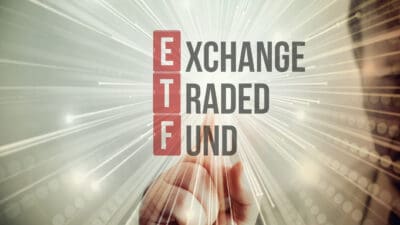With a current $4.74 billion in funds under management, the Vanguard MSCI International Shares Index ETF (ASX: VGS) is one of the more popular exchange-traded funds (ETFs) on the ASX.
In fact, it is the second-most popular ETF covering non-ASX shares on the markets right now. However, this ETF from the reputable Vanguard Group, might not be all that investors might think.
This ETF's name – the Vanguard MSCI International Shares Index ETF – implies that this is a broad-based and highly diversified fund covering many different shares from multiple markets around the world.
And indeed it is so. Vanguard tells us that this ETF currently has almost 1,500 underlying holdings. These are sources from more than 20 different advanced economies from around the globe. They include Canada, Japan, the United Kingdom, France, Switzerland, Germany, Hong Kong, Israel, Singapore and Norway.
Broad and diversified right? Well, yes. And no.
Is the Vanguard International Shares ETF just a bet on Uncle Sam?
See, the Vanguard International Shares ETF mirrors an index compiled using weighted market capitalisation, just like almost every index fund out there.
This method gives the largest companies by market cap the largest positions in the ETF's underlying portfolio, and the smallest ones the smallest positions.
In the Vanguard International Shares ETF's case, this methodology has resulted in a fairly top-heavy portfolio. To illustrate, let's look at the ETF's top ten positions. Yes. the fund has almost 1,500 individual shares in its portfolio. However, its top ten shares comprise a whopping 19.7% of the portfolio's weighting.
That means that almost $1 in every five invested in this ETF is going to just ten companies. Out of nearly 1,500. These include names like Apple Inc (NASDAQ: AAPL), Microsoft Corporation (NASDAQ: MSFT), Tesla Inc (NASDAQ: TSLA) and Exxon Mobil Corporation (NYSE: XOM).
What's more, is that all ten of these top companies in the ETF are US companies. In fact, a whopping 71% of the Vanguard International Shares ETF's portfolio by weighting is concentrated in US markets. That leaves just 29% of the ETF's portfolio in markets outside the US.
So perhaps not quite as broad and diversified as one might initially think.
There's nothing inherently wrong with this approach of course. This Vanguard ETF still faithfully follows the index it is designed to track. But if an investor was expecting an ETF that spreads its investments across a more equalised range of markets, companies and countries, they might want to look elsewhere. This is a very US-heavy ETF at the end of the day.









